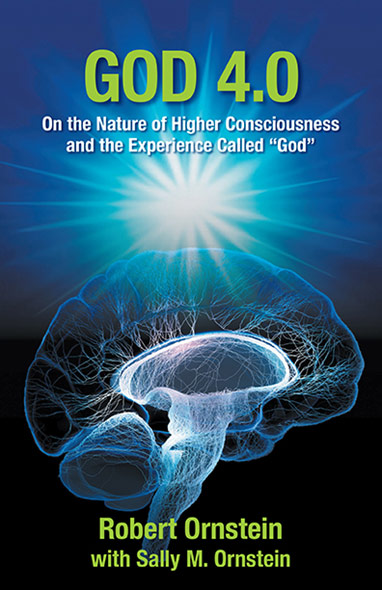
Time and Self
Hugh McGilvery | February 22, 2023
A few months ago, at a holiday lunch, someone remarked how fast the year had gone by, and how the older we get, the quicker time seems to pass. All of us there were 50-plus and affirmed that weeks and months had flown by leaving barely a trace. I recall the Ezra Pound verse: “And life slips by like a field mouse/Not shaking the grass.”
Coincidentally, I came across two separate articles in the news feed on my iPhone in the last two days. One of these was entitled Researchers say time is an illusion. So why are we obsessed with it? The other one was Time flies by faster as we get older. Here’s why. The former is based on the space-time theory of Einstein and the latter is a neuropsychological analysis. The point both make is that our perception of time is subjective. Time is a social construct, according to physicist Chanda Prescod-Weinstein quoted in the “time is an illusion” article.
It’s difficult to wrap our minds around a statement like ‘time is an illusion,’ but it seems to me it all stems from our inherently self-centered view of life and experience. And while it may not be a simple thing to free ourselves from the shackles of (illusory) time, there are some things we can do to gain a less me-centered perspective—and that brings its own benefits.
Our normal consciousness is time-centered and gets us into trouble, composed as it is by what Robert Ornstein calls “a squadron of simpletons,” a multitude of small minds, each of them ‘me-centered’, that evolved thousands of years ago. They were ideal when our survival depended upon fighting, fleeing and reproduction, but are inappropriate for solving today’s problems.
We subconsciously know that. How often have you read or heard the news and thought: Why couldn’t we just collaborate across borders and come up with solutions that actually address our global problems? After the devastation of two world wars, international institutions, such as the United Nations and later the European Union were created to address the common good in a less me-centered way. Today our leaders often seem to advocate the reverse, giving lip service to these institutions while resolutely sticking to me—or nation—or party-centered responses.
Our subjectivity is built into us. What we perceive is a me-centered view of life. I remember this amusing joke of two people on opposite banks of a river. The person on one side shouts to the guy across the river: “How do I get to the other side?” And the guy answers, puzzled, “But you’re already on the other side.”
In God 4.0, Dr. Robert Ornstein and Sally Mallam Ornstein make important observations on how our perception of space and time is neurobiologically linked to our sense of a separate self. They explain how being constantly “in self” leads to a narrowing of vision and less compassion. In contrast, being “out” of this self, or not being confined by it, allows one to be more tolerant and kinder. With practice, this open and liberal attitude develops into a second system of cognition, and we become a little wiser, too.
But how do we “practice” this?
The Ornsteins suggest a number of possibilities; among them, how experiencing awe can help loosen the grip of the usual self:
…awe slows our personal sense of time, and as a result, increases our perception of how much time is available, a step in the direction of believing in eternity. It can result in a diminishment of the individual self and its concerns, and an increase in prosocial behaviors such as generosity and compassion. It also reduces impatience, which can lead to more prosocial behaviors, such as the willingness to volunteer our time. The opposite—feeling pressed for time—has a negative impact on people’s willingness to stop to help others in need. Experiencing awe causes a change in brain function to release a more selfless, transcendental consciousness.
They recommend the works of the Afghan savant and author Idries Shah. I’ve been reading Shah’s books for a number of years and his work does indeed cultivate a more flexible, multidimensional appreciation of situations. Shah describes his corpus of works as “instrumental”—that is to say, absorbing the teaching-stories, narratives and anecdotes he has selected for contemporary society develops this alternate consciousness. The material encourages a more comprehensive worldview, one that facilitates more productive action.
As the authors point out in God 4.0, this expanded consciousness can now be understood neurobiologically. It is a uniquely human capacity that is latent in all of us. Our prophets and spiritual teachers—Hillel, Jesus, Muhammad, Rumi, El-Ghazali etc. have all addressed this potential, emphasizing service and virtues as a means of accessing it.
Shah, in his book, The Way of the Sufi, points out that “All religious presentations are varieties of one truth more or less distorted. This truth manifests itself in various peoples, who become jealous of it, not realizing that its manifestation accords with their needs. It cannot be passed on in the same form because of the difference in the minds of different communities. It cannot be reinterpreted, because it must grow afresh.”
But we are back considering time again. How fortunate we are to have access to a way to develop this mindset now, when it is most obviously needed; to join with others for more productive action.
I’m reminded of another short anecdote from the same book:
THE CELESTIAL APPLE
Ibn-Nasir was ill and, although apples were out of season, he craved one.
Hallaj suddenly produced one.
Someone said: “This apple has a maggot in it. How could a fruit of celestial origin be so infested?”
Hallaj explained: “It is just because it is of celestial origin that this fruit has become affected. It was originally not so, but when it entered this abode of imperfection it naturally partook of the disease which is characteristic here.”
Hugh McGilvery is a retired high-altitude test pilot for the US Air Force and is the author of several monographs on the physics of windblown sand. He lives in a small town in the Green Mountains of Vermont.
Recent Blogs
- An Old Story About Metaphysics
- The Conditioning Machines in Our Back Pockets
- Out on a Limb: The Danger of our Innate Shortsightedness
- Edward T. Hall: Culture Below the Radar
- The Half Brain Method
- 'He Who Tastes Knows': Contemporary Sufi Studies and the work of Idries Shah
- "They Saw a Game"
- A Funny Thing Happened on the Way to Enlightenment
- Finding the Right Way Home
- Time and Self
- Escaping the Either/Or Thinking Trap
- Looking Up, Looking Out
- Conditioning and the Gendered Brain
- New World, Same Mind?
- One Small Word
- Meaning: The Enduring Gift to Spirit
- Beyond East and West: Human Nature and World Politics
- Forest Smarts: A Part of or Apart From?
- How to Improve Group Decision-Making
- We Know More Than We Think We Do
- How Deep Can a Story Go?
- Lost and Found: An Encounter with the Intuitive Mind
- The Devil’s Tuning Fork
- Welcome to The Human Journey Blog

